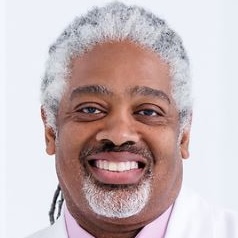 We all have our traditions and stories that are familiar. For me, it happens to be Christian texts and allegories, but the description of the Eutychus phenomenon (Acts, Chapter 20; 7-12) is not religious and for the purpose of this mental exercise, we can simply think about historical Greek writings and considers the Acts of the Apostles as simply a historical narrative.
We all have our traditions and stories that are familiar. For me, it happens to be Christian texts and allegories, but the description of the Eutychus phenomenon (Acts, Chapter 20; 7-12) is not religious and for the purpose of this mental exercise, we can simply think about historical Greek writings and considers the Acts of the Apostles as simply a historical narrative.
According to the story, Eutychus was a youthful person in attendance while Paul was speaking to a well-organized group (that happens to be a church). Paul’s messages went on for a protracted time. Part of the story is that Eutychus was sitting in a windowsill and was overcome by sleep, then fell through the open window to his death, only to be revived by Paul.
The parallel I received as I listened to Pastor Otis Moss preach about this text relates to the experiences those of us who are in the room, but not truly given a seat or a voice experience. He was relegated to the window on the third floor in a room with many candles and consequent heat.
The name Eutychus means “fortunate.” This adjective, however, is often weaponized when people overlook the effort marginalized people exert to get into reserved spaces. I have often heard how fortunate I was to be accepted to Yale. Certainly, I don’t view my time in New Haven as misfortune but describing it as fortunate intimates that it was serendipity, rather than result of hard work, talents, and skills. So, part of the Eutychus phenomenon is viewing those with diverse viewpoints in the room as fortunate, but not vital contributors. The narrative that affirmative action scours the earth looking for inept candidates to give them what mediocre White people rightfully deserve is oft repeated and sadly, embraced by many.
As Pastor Moss unpacked his message, he noted that the people in the clique, already had a seat. It was the young person who they wanted in the room but didn’t necessarily want to hear his thoughts or his voice.
This is another aspect of the Eutychus phenomenon. Those of us who have been historically overlooked and are now under-represented are familiar with feeling tolerated, but not genuinely welcomed. We rightly discern with the organization wants us in the room, or in the photo, or on the website, but they don’t really want to consider our perspectives when it comes time to make decisions. Ever rarer are the times that the group defers to the voice in the window seats.
The chosen leaders may talk incessantly and drive us to death, but they are likely to continue with organizational momentum and keep us at the margins.
Eutychus fell from the window and lost his life. Marginalized people in institutions deal with racial battle fatigue, stress, and the physiological manifestations of hypertension and other diseases. Life expectancy is tangibly reduced. If we focus on graduate medical education, we observe a significant paradox. Black people can have longer life expectancy in geographical locations where there are more Black physicians. Black physicians, however, have a life expectancy five years shorter than their White counterparts. Caring for some of the most vulnerable, overlooked and underserved patients — and doing it well — does appear to exact some toll. Coupling that with lower, on average, pay and the experience of existing in a predominantly White space while advocating for the care of Black patients, and the plausibility of stress that literally kills becomes more apparent.
We are less likely to have a Paul to resurrect us (again this is the Biblical story that is not essential to recognize the event), so, we need recognize what is putting us to sleep and placing our health and well-being at risk.
Wake up!
 H. Steven Sims is the director of the Chicago Institute for Voice Care – a comprehensive voice treatment center affiliated with the University of Illinois Chicago dedicated to the care of voice and airway disorders. A laryngologist and board-certified otolaryngologist, as well as an accomplished musician, he uniquely blends his expertise and passions in his career in professional voice care. A graduate of the Yale University School of Medicine, where he completed his residency training, Dr. Sims completed a research fellowship at the National Institute on Deafness and Communication Disorders and a clinical fellowship at the Vanderbilt Voice Center. He is also an accomplished musician who plays trombone, bassoon and piano.
H. Steven Sims is the director of the Chicago Institute for Voice Care – a comprehensive voice treatment center affiliated with the University of Illinois Chicago dedicated to the care of voice and airway disorders. A laryngologist and board-certified otolaryngologist, as well as an accomplished musician, he uniquely blends his expertise and passions in his career in professional voice care. A graduate of the Yale University School of Medicine, where he completed his residency training, Dr. Sims completed a research fellowship at the National Institute on Deafness and Communication Disorders and a clinical fellowship at the Vanderbilt Voice Center. He is also an accomplished musician who plays trombone, bassoon and piano.

